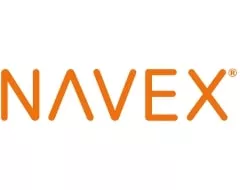These are strange times we are living in, but as a business leader, have you thought about the impact of remote working on whistleblowing? More people than ever are now working from home, and for workplaces that are unused to remote working, this can feel like a serious challenge to corporate governance and control. Is there an increased risk of misconduct when employees are no longer under the watchful eye of their line managers? Will whistleblowers be more or less likely to report concerns when away from the workplace? We cannot give definitive answers to these questions. However, what we can provide knowledge on is how to ensure that whistleblowing systems remain effective in remote working contexts. What can you do make sure that your whistleblowing system continues to bring you those critical whistleblowing reports?
In this blog, we share our insight on actions that you can take to lessen any negative impact of remote working on whistleblowing, if a whistleblower indeed decides that the whistle needs to be blown.
What might be the behavioural impact of remote working on whistleblowing?
Distance could create a sense of security. Your employees may already have witnessed suspicious behaviour in the physical workplace, but not had the courage to report it. We know from customer conversations that people feel braver reporting their concerns from a home environment. Distance from the workplace might create that sense of confidence and give valuable perspective, both of which may embolden employees to blow the whistle on activities they have long suspected.
Distance could create a sense of ambivalence. On the other hand, the opposite might be true. With distance from the workplace, some employees may feel that there is less of an urgency to report, and indeed hope that the problem will disappear without their involvement. Or worse, perhaps these uncertain times will actually make it easier for some employees to rationalise the misconduct of others as being necessary in times of crisis.
Distance may create new opportunities for misconduct. From violations of labour law, to flouting of your company's health and safety policies. From faulty reporting of time spent working while at home, to data security breaches or environmental crimes taking place while fewer people are around to control the physical workplace. Certain unethical business practices may be all the more tempting for some employees to conduct when they perceive that there is less control of their actions.
In any of the above the scenarios, as the leader of your organisation you will want to make sure that your company's Code of Conduct, remains well and truly top of mind for employees, and that it is underpinned by an accessible and functioning whistleblowing system.
How can you reduce the impact of remote working on whistleblowing?
Here are our top tips for actions that you can take today to ensure that good business ethics are maintained throughout these times of increased remote working. And if they are not maintained that you get to know about things quickly.
- Despite the remote working situation, be more present. Communicate more, and communicate clearly to remind employees that appropriate conduct and behaviour are expected even when working remotely.
- Update your Code of Conduct for remote working practices if necessary.
- Remind people that your company whistleblower channel is always open, and always available from any location and any type of device, and explain again how they can access the channel.
- Ensure the tools and team are in place for "remote" case management and investigations. Can electronic documents and evidence be sourced and handled securely? Can the whistleblowing team communicate securely even though they are located remotely? Can professional external investigators work with your team securely, even under remote working conditions?
Digital whistleblowing solutions in times of remote working
So, do not leave the reputation of your company to chance. You need to remain vigilant in case new remote realities increase the risk of misconduct and make it harder for you to discover it. Look for a secure, digital whistleblowing solution that is easily accessible to employees, suppliers, customers or other stakeholders, anytime and anywhere. Another advantage of digital solutions is that they do not rely on people being in a particular location, and are therefore particularly suited to remote working circumstances, as long as they also have robust security.
The content of this article is intended to provide a general guide to the subject matter. Specialist advice should be sought about your specific circumstances.

